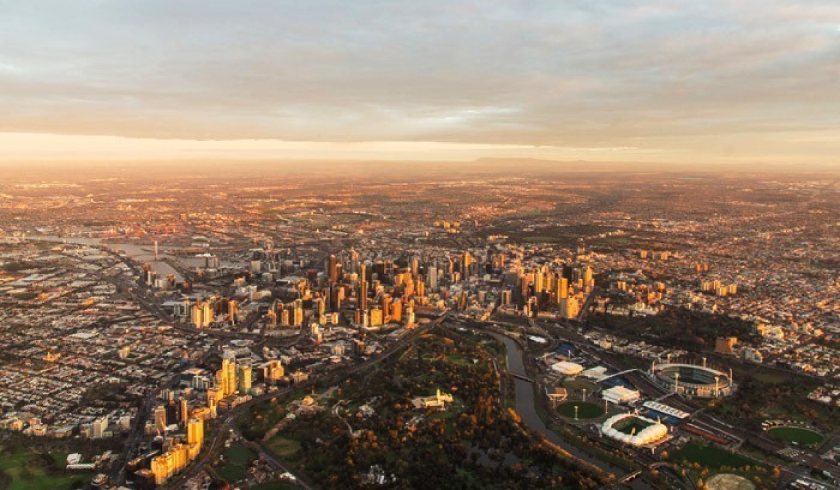Victorian budget 2021: How does it impact the property market?

As part of the changes to the property market, Victorians who are at the bottom have been given a helping hand with tax reforms said to ease their access to the property market.
Those who have benefited from a rising property market have been asked to “pay a little more”, as the government looks to recoup some of the losses from the COVID-19 recession.
As part of his speech, Treasurer Tim Pallas announced sweeping changes to the tax system, including a new windfall gains tax, a premium stamp duty rate and a land tax hike, as the state looks to recoup some of the $17.4 billion deficit.
As such, Mr Pallas said that the people who profited from the pandemic have to pay their share.
“That’s why we will increase taxes on top-end property owners who have benefited from soaring real estate prices,” he said.
“To make sure that every single dollar we spend is supporting the services Victorians need, we will also implement a program of initiatives focused on reprioritising government’s efforts.”
The Treasurer said the “modest” increase would only affect a fraction of the 10 per cent of Victorians who pay land tax, which is not paid on owner-occupied homes.
Winners
Home buyers
Home buyers buying off the plan are one of the major winners, with the off-the-plan stamp duty concession being temporarily increased to $1 million.
The threshold will apply for contracts entered into from 1 July 2021 to 30 June 2023.
A new 50 per cent concession will also apply to new residential properties in Melbourne that have been unsold for less than 12 months. It will apply to contracts from 1 July 2021 to 30 June 2022.
In addition, home buyers purchasing residential property worth up to $1 million in Melbourne will get a concession of up to 100 per cent on stamp duty if the property has been unsold for more than 12 months from 21 May 2021 30 to June 2022.
Land owners
Owners of taxable landholdings valued at less than $300,000 will no longer pay land tax, with the tax-free threshold for general land tax rates to increase from $250,000 to $300,000 from 1 January 2022.
“We are lifting the land tax-free threshold to $300 000, so over 60,000 taxpayers, including many small businesses, will no longer have to pay land tax,” Mr Pallas said.
Big housing build
The government has also announced a $5.3 billion investment known as the Big Housing Build which is set to create thousands of new homes for Victorians, while adding an additional 10,000 jobs to the economy.
This budget builds on the government’s commitment to giving more Victorians a place to call home, while continuing to drive the state’s recovery.
This includes:
- $194 million for services that prevent homelessness, focusing on people who need help in the rental market, young people leaving care and vulnerable Victorians with complex needs.
- $26 million to better target early intervention for rough sleepers.
- $17 million to help the Victorians housed in hotels during the pandemic continue to find permanent accommodation.
- $9.1 million to build and operate a new Aboriginal refuge in Horsham to support victim survivors of family violence.
Losers
While the government has announced some major winners and support for those who need a leg-up, those at the top will now face brand-new taxes.
Increased land tax rates for high-value landholdings
As part of the tax reforms, from 1 January 2022, land tax rates for taxpayers with larger property holdings will increase by 0.25 of a percentage point for taxable landholdings in excess of $1.8 million and 0.3 of a percentage point for those with landholdings exceeding $3 million.
This change will apply to both the general and trust surcharge rates and support additional investment in the services and infrastructure the community relies on.
Premium stamp duty rate on land transfer duty for high-value properties
As part of the changes, the government has announced a new premium stamp duty rate for property transactions valued above $2 million.
From contracts entered into after 1 July 2021, the new land transfer duty threshold for high-value property transactions will apply.
The government said that it expects the change to impact less than 4 per cent of all property transactions, and is estimated to raise an additional $137 million for the government next financial year.
Removal of land tax exemption for private gender-exclusive clubs
From 1 January 2022, private gender-exclusive clubs will no longer be eligible for the land tax exemption for societies, clubs or associations.
This initiative is expected to result in increased tax payable from private gender-exclusive clubs with high-value landholdings that currently receive a land tax exemption.
Windfall gains tax for high-value landholdings
From 1 July 2022, a tax will apply to large windfall gains associated with planning decisions to rezone land, ensuring that all Victorians receive a fair share of these windfall gains.
The government said that developers and speculators will face a windfall gains tax of up to 50 per cent applied to planning decisions to rezone land from 1 July 2022, adding that the tax on these profits will “claw back” around $40 million into the state government’s coffers.
The total value uplift from a rezoning decision will be taxed at 50 per cent for windfalls above $500,000, with the tax phasing in from $100,000 — ensuring the vast majority of landholders will not be affected.
The tax is payable on rezonings across Victoria, except on rezonings to and from the Urban Growth Zone within existing Growth and Infrastructure Contribution areas, and rezonings to Public Land Zones. The tax applies to rezonings between zone types rather than between zone sub-categories.
This initiative will help ensure developers and landholders who benefit from planning decisions pay their fair share.

